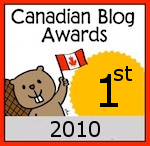“I listened to all kinds of music when I was young, and when I was younger I said one day I was gonna play all kinds of music, and not be judged for the color of my skin, but the quality of my work. And hopefully that will continue.”
Prince Rogers Nelson (yes, that is his real name!) was an innovator from start to finish. He brought together a multitude of influences, but was never beholden to any single one. No matter the song, you knew it had to be Prince when you heard it, because no one else had the daring and the aplomb to pull that off. He broke all the rules of gender, as well as all the rules of genre. He was one of the few artists who could wear full makeup and frilly, colorful outfits and heels, and sing falsetto, and still not come off as a wimp. You can tell he must have stared down more than his share of bullies. Prince was a badass before that word was even coined. The secret was in the way he carried himself, upright and proud. His presence was literally larger than life, because in life, he was tiny — just five feet two, slight and slender. He was also intensely private, and often came off in person as rather shy. His outsize stage persona made you forget all that.
And when he covered other artists, as he often did, he blew the originals out of the water.
Prince was a walking contradiction, though he walked with inordinate confidence. His love of women was no secret, but that openly sensual side was at odds with his fundamentalist religious upbringing and the toxic masculinity of his abusive father. In music he would often mimic a preacher’s intonation, but the style quickly gave way to a diametrically opposed substance:
“In this life, things are much different than in the afterworld. In this life, you’re on your own.”
Prince was on his own, all right, but he generated so much momentum that he was able to pull the most diverse array of fellow artists along in his wake. There were always women in his band, because he loved working with them and believed in their ability to rock, long before the rest of the industry had caught on. And if anyone doubts that he picked them for their talent, just listen to the sound of his bands — the Revolution, and later, the New Power Generation. It was big, it was badass, it was replete with balls AND ovaries. It was male and female, black and white, Latino and Anglo. Prince had a genius for bringing together seemingly contradictory and opposite elements, and making it all work in delectable, cacophonous harmony.
Prince’s sexual conquests were many, and varied; one of his less popular albums was rumored to have actual sex noises on it courtesy of Kim Basinger, with whom he was having an affair at the time. He was deliberately outrageous, but it was not always just outrage for outrage’s sake. There were trenchant messages in his music, right from the get-go:
“People call me rude, I wish we were all nude
I wish there was no black and white, I wish there were no rules.”
Prince stayed out of partisan politics (he even refused to vote after becoming a Jehovah’s Witness), but he had a song (from the same early album as the one above) called “Ronnie, Talk to Russia”, which made it clear that he was pro-peace long before a certain former actor told Mikhail Gorbachev to “tear down this wall”. A simple but sensible outlook, and certainly one that doesn’t require a party membership card.
And of course, his anti-racist views never changed. He supported the Black Lives Matter movement, wrote a song about the Baltimore riots, and even privately donated money to Trayvon Martin’s family.
Mostly, though, what sticks with me is his overt vulnerability; all the sexual braggadocio in the world can’t touch what the very first Prince song I ever heard (at 15) did to me, with its open confession to being intimidated by a partner who was much more experienced than he:
Sadly, in it I also now hear the seeds of his demise; he told the unknown girl in the Corvette that she was “much too fast” and had to slow down or she’d run “right into the ground”, but he didn’t heed his own warning. His own life’s pace seemed to keep picking up until it suddenly crashed a few days ago, not long after he was treated in Illinois for a near-fatal drug overdose. If this alleged former drug dealer is to be believed, Prince may have had a well-hidden opioid addiction that led to an accidental, fatal overdose (the coroner’s report is not yet in, at this writing). It might go a long way, also, toward explaining his strange behaviors, since the alleged dealer says he self-medicated because of crippling social anxiety, and depended on the drugs to function with some semblance of normality. His broken family history is already known; such circumstances are often a factor in an addict’s personality. Certainly his religious fundamentalisms pointed that way already; people can as easily become addicted to Jesus as to any dope in the world, and his compulsive way of going about it suggests that he was a junkie to the opiate (or opioid?) of the masses as well.
It’s rumored that his vault at Paisley Park Studio contains some 20,000 unreleased songs; if true, that speaks to a definite workaholic tendency. It also means that we’ll be in Prince songs for many a decade to come, if they ever are released. And more than anything else, it will make it feel as though his purple reign had never, and will never, come to an end. And it can’t. Because Prince, being the magnificent control freak he was, will never let it. Not even in death.



